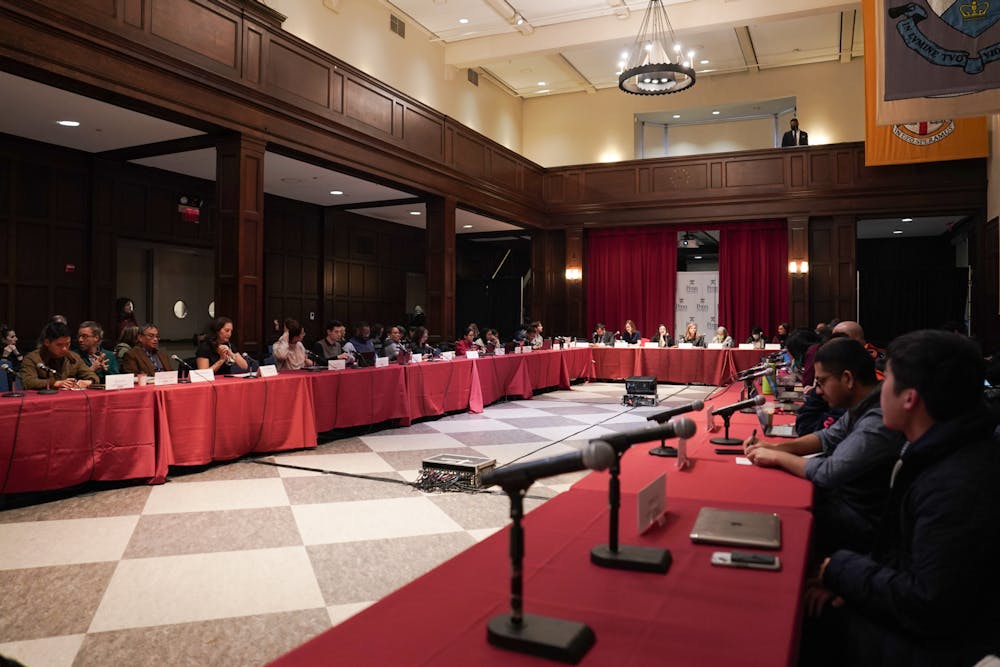
Since I arrived at Penn three months ago, tensions over social and political issues have risen to a level I’d never seen before. The Palestine Writes Literature Festival, the Oct. 7 Hamas attack on Israel, and the University’s reaction to those events have plummeted our campus into controversy. Nearly every Penn student has felt the effects of ongoing conflict this semester.
Now, it’s clear that many of us are left with critiques for our University’s leaders. Everything from student protests to donors’ letters of discontent have cited President Liz Magill in their objections to the status quo.
If you are upset, uncomfortable, or at all discontent with Penn’s current situation, there is a once-a-year opportunity to say something to university leadership on Nov. 29. From 4-6 p.m., the University Council open forum allows anyone with a PennCard to address the highest offices of our administration, including Provost John Jackson and President Magill. Each November, members of the Penn community outside of Council membership are allowed to participate in the open forum.
If you’re like most Penn students, you’ve probably never heard of the University Council, a body that holds meetings on the final Wednesday of each month in Houston Hall. There, a large membership, including undergraduate students selected by the Nominations & Elections Committee of Penn Student Government, discusses broad issues throughout the University. Those covered in the most recent meeting ranged from resources for students during the Israel-Palestine conflict to the upcoming re-accreditation process.
These meetings may seem endlessly boring, but that doesn’t detract from their necessity. Meetings of the University Council are one of the few ways that Penn guarantees open discourse directly between students across schools and class years and our administrators. Engaging with opportunities to have dialogue with Penn’s leaders reminds them that they have a duty to serve students.
I encourage anyone who faces a problem with their education, job, or other role at Penn to make a public comment. Since the meeting is so soon, there are no guarantees that everyone will be able to speak. However, it’s crucial that some of us try.
I’ve decided that I don’t have any concrete problems that would warrant me to make a public comment, but I will still be at that meeting. I would also encourage anyone even mildly interested in the meeting to attend. Just simply making an appearance sends a message to our leadership that their actions affect a great number of people.
A trend I’ve noticed among Penn students is a likeness to complain about their situation, but a lack of action to improve the conditions at our school. It’s simple: if you don’t care enough to do something about your plight, then you have little ground to complain. When you truly see a problem, say something.
Once again, the University Council meeting is a great opportunity for just that. During those two hours, you’ll be able to voice your opinion and hear those of your peers. I know I wouldn’t miss it. I hope to see you there.
JACK LAKIS is a College first year studying Political Science from Kennesaw, GA. His email is jlakis@sas.upenn.edu.
The Daily Pennsylvanian is an independent, student-run newspaper. Please consider making a donation to support the coverage that shapes the University. Your generosity ensures a future of strong journalism at Penn.
Donate







